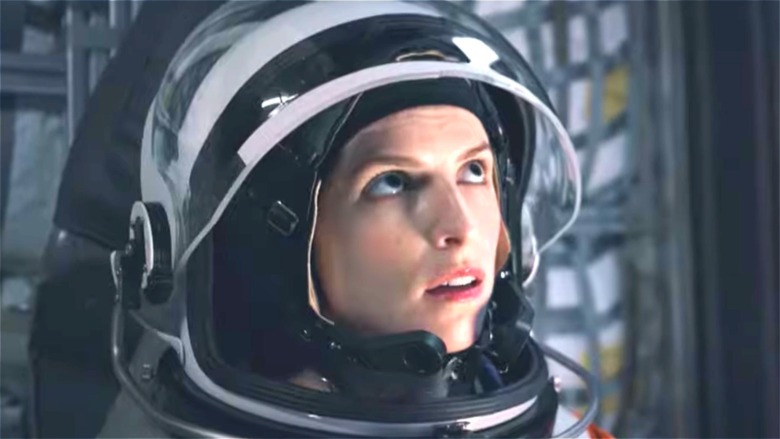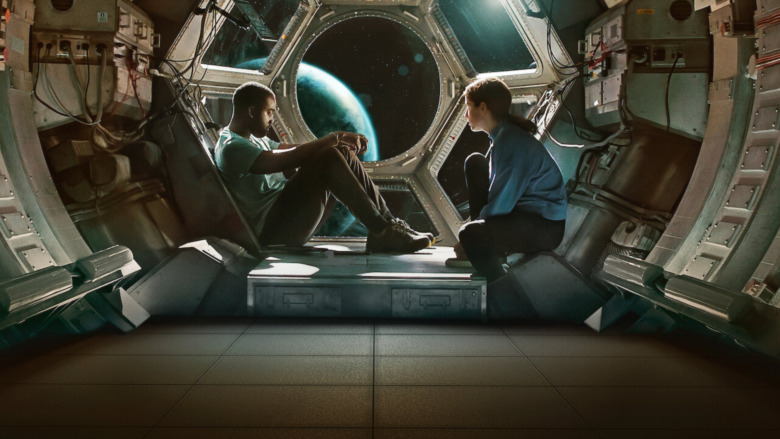Could Stowaway Happen In Real Life?
Movies about going to space are nothing new. Le Voyage dans la Lune from Georges Méliès depicts a mission to the moon all the way back in 1902, but there certainly seems to be a plethora of content within the last decade of artists ruminating on what it means to expand humanity's reach. Interstellar, Gravity, and Ad Astra have all dared to explore the cosmos, and now, the upcoming Netflix film Stowaway may just join their ranks as inventive science fiction that terrifies as much as it sparks wonder.
Stowaway follows a manned mission to Mars, consisting of commander Marina Barnett (Toni Collette), biologist David Kim (Daniel Dae Kim), and medical researcher Zoe Levenson (Anna Kendrick). After the launch of the spacecraft, the three discover a stowaway, Michael Adams (Shamier Anderson). This proves to be problematic as they only have enough food and oxygen to support three individuals, so they'll all have to deal with some tough conundrums to make it out of this scenario alive.
In this movie, the terror doesn't come from aliens or black holes; it's the result of something that seems a lot more manageable. With that in mind, how likely is it that someone could get on board a spaceship without anyone knowing? The answer — not very likely.
NASA goes to extreme lengths to prevent stowaways of any kind
It should go without saying, but it would be immensely difficult — if not absolutely impossible — to get on board a spacecraft from NASA without anyone knowing. There's no real information online about what exactly NASA does to ensure that (probably to make it harder for anyone trying to think of a way), but you just need to look at the lengths the organization goes to in order to prevent microorganisms from getting onboard.
While it would be impossible to eliminate bacteria of all kinds, strict cleaning protocols are in place for all humans and equipment that has to go into space (via NASA). Routine cleanings then take place on spacecraft to ensure bacteria doesn't grow out of control and potentially interfere with any experiments taking place. This extends to the crew's drinking water, which is described in the article as "cleaner than just about anything [the astronauts] drink on Earth." With such rigorous demands to keep microscopic beings at bay, we'd expect even tighter rules in place regarding who goes inside a vessel prior to launch.
Plus, even if you could somehow get on board, why would you want to? Stowaway seems to provide an explanation by showing how Michael Adams worked on the rocket, got knocked unconscious, and was left in the craft. If you were getting on board of your own volition, then the only thing you would have to look forward to is a long trip away from your friends and family where you'll be exposed to conditions you aren't properly trained for. We're also betting the authorities would have a word or two with you upon your return.
For now, the only stowaways welcome on spacecraft are of the plush Baby Yoda variety.

